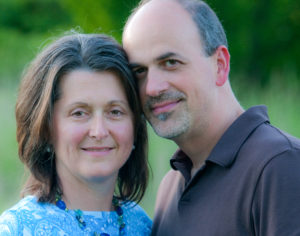
I’m amazed at how when I stop being afraid of my negative emotions they give me such helpful information about how to heal and live with integrity. My friend Dorothy Greco agreed to share some of her wise book on marriage with us on just that topic. She gracefully shares how disappointment can harm our relationship–or help us learn to let go of unhelpful expectations. I’m so grateful for her insight into this tricky process.
For the first ten years of our marriage, my husband and I almost always fought on our anniversary. The first year, I thought it would be fun to wear my wedding when we went out to dinner. Rather than tell me I looked beautiful, my husband raised his eyebrows and made humorous comment. Year after year, I eagerly anticipated an over-the-top evening replete with a thoughtful gift, affirming words, and amazing sex—and then found myself growing increasingly disappointed as the evening wore on. There was one major flaw in this plan; my husband is not into romance. This conflict of expectations erupted on our tenth anniversary. We had gone away to celebrate and within the first two hours, I felt that all-too-familiar disappointment creeping in. I decided to share my feelings with him and he responded with (justifiable) anger. That weekend remains one of the low points in our twenty-five year marriage.
Disappointment can be nebulous. It sometimes manifests as sadness, irritability, fear, or despair, making it difficult to identify. Marital disappointment often surfaces in connection to what our spouse has or has not done. We feel disappointed because they stopped exercising and gained weight, disappointed that they cannot break free from depression, disappointed that they do not want to pray regularly. Though we can experience disappointment in our own failures and limitations, it’s much easier to fixate on our spouses’.
According to Fuller Seminary psychology professor Dr. Jeffrey Bjorck, “disappointment is an initial response to learning that our expectations will not be met.” Early on in our marriage, I was disappointed that Christopher did not share my enthusiasm for romance. He was disappointed that I had such difficulty staying engaged in lengthy conversations. Once we realize the connection between disappointment and expectations, choosing to remain in a place of disappointment “constitutes a failure to accept and grieve the loss of those expectations. By not accepting the losses, we perpetuate unhealthy disappointment.”
Apparently, I have resisted accepting my losses because disappointment has been a faithful companion for most of my life. It has consistently robbed me of joy, perhaps specifically in my marriage. That 10th anniversary fight? Because I came into the weekend with rigid expectations (I wanted flowers, a thoughtful card, and a unique gift), I was unable to appreciate what Christopher was offering me. The disappointment that washed over me that afternoon quickly morphed into fear and despair. I assumed, This dynamic will never change. We’ll always miss each other on these milestone events. Ironically, the traditional tenth-anniversary present is tin or aluminum, symbolizing the flexibility that marriage requires of us.
The Role of Disappointment in Ferreting Out Unhelpful Expectations
When we experience disappointment in marriage and it’s no one’s fault (such as a miscarriage or loss of employment due to corporate downsizing), we generally grieve and figure out how to move on. It’s the disappointments that point back to our unrealistic expectations for each other that tend to be stickier. These hard-to-shake disappointments can sometimes be described as disordered attachments—misplaced desires that compete with God for our heart. By following the thread that runs through our disappointments, we can often uncover their origin.
Christopher and I have had our share of sticky disappointments; that’s part of what our year-ten crisis was all about. When I married him, naive optimism overshadowed the reality that he is mercurial, does not like public displays of affection, hates flying on airplanes, and has time-deficiency disorder. (Don’t bother looking this up; I diagnosed him.) That same optimism obscured the reality that I struggle to need him, am too quick to judge, and prefer doing to talking.
These relational speed bumps were definitely not marked with fluorescent orange paint. After we scraped our undercarriage and experienced whiplash more times than I care to admit, it began to dawn on us that perhaps we needed to find a more productive, less destructive path through our disappointments. We started asking probing questions such as, What if rather than blaming each other for our disappointments, we confessed our failures and owned our areas of weakness? What if we looked under the disappointments to discern if they revealed any egocentric expectations, disordered attachments, or misplaced hopes? Once we stopped avoiding these seemingly problematic feelings and started investigating them, something shifted.
Rather than continuing to blame Christopher for my disappointment, I started asking the Lord to help me do three things: repent of any unfair expectations, appreciate Christopher’s strengths, and develop reality-based expectations. Of these three objectives, developing reality-based expectations has been the most difficult. My unrealistic expectation of being romanced died an ugly, slow death because I stubbornly clung to it. Clinging is a form of denial that masquerades as hope. We persist in clinging because it gives us something to hold on to and allows us to sidestep the hard work of changing what we have control over: ourselves.
My prayers are finally paying off. I’m learning to let go of my unrealistic expectations by choosing an internal posture of holy resignation. Practically speaking, holy resignation means accepting and loving your spouse without demanding that he or she change, resisting the vortex of despair and blame, and standing in faith that God will complete a good work in the marriage—regardless of current circumstances.
Even as I mourned the death of my illusion, I gradually began to understand that it was my expectations—not any actual deficits—that kept my disappointment on life support. (To clarify, it’s not wrong to express our hopes and desires to our spouses or even ask them to develop in previously undeveloped areas. When it becomes clear that they will not or cannot meet our expectations, we have to adjust those expectations.) As I reflect back on this dynamic, I now realize that God had been inviting me to see from His vantage point for years, but I obstinately resisted and continued to blame Christopher for my unhappiness.
 When our 25th anniversary rolled around last year, I was ready. Rather than shut down and abandon all hope for something meaningful, I suggested that we celebrate the milestone twenty-five times—rather than once—hoping it would take the pressure off that night. It worked! We’ve gone to the theater, done extra long kayaks, and given each other some special gifts. Every time, we remember to say happy anniversary! I’m thrilled to report, this has been the most conflict-free year we’ve ever had.
When our 25th anniversary rolled around last year, I was ready. Rather than shut down and abandon all hope for something meaningful, I suggested that we celebrate the milestone twenty-five times—rather than once—hoping it would take the pressure off that night. It worked! We’ve gone to the theater, done extra long kayaks, and given each other some special gifts. Every time, we remember to say happy anniversary! I’m thrilled to report, this has been the most conflict-free year we’ve ever had.
This article was adapted from Making Marriage Beautiful (Making Marriage Beautiful, 2017) published by David C Cook. Used with permission.
 Dorothy Greco writes about how following Jesus changes everything. Her first book, Making Marriage Beautiful, released January 1. (You can download chapter one from her website.) When she’s not writing or making photographs, Dorothy and her husband love to kayak and walk on the beach. They have three grown sons and live near Boston, MA.
Dorothy Greco writes about how following Jesus changes everything. Her first book, Making Marriage Beautiful, released January 1. (You can download chapter one from her website.) When she’s not writing or making photographs, Dorothy and her husband love to kayak and walk on the beach. They have three grown sons and live near Boston, MA.













 Why I Always Ask Permission Before Giving My Kids Advice: For iBeleive
Why I Always Ask Permission Before Giving My Kids Advice: For iBeleive